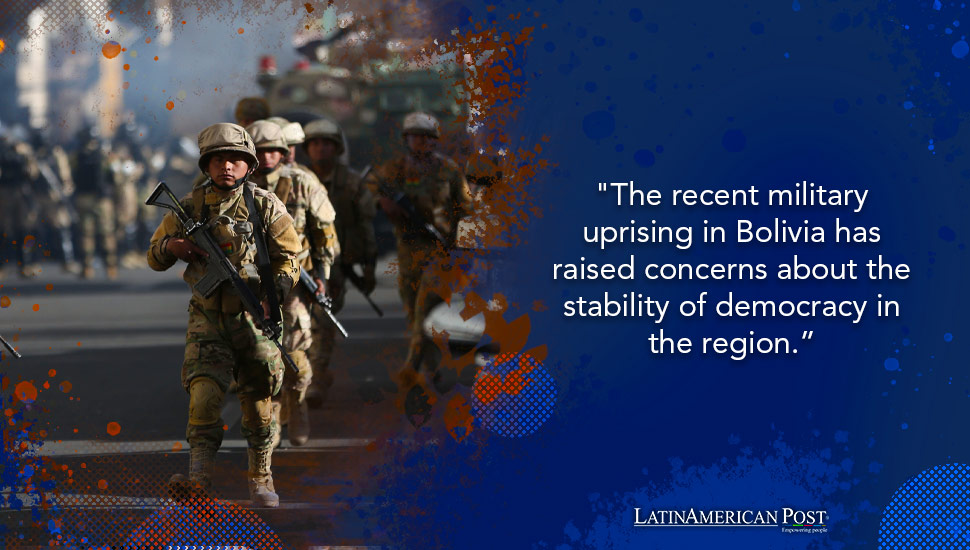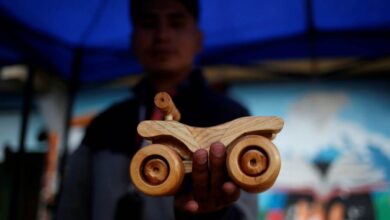Latin American Nations Must Closely Watch Bolivia’s Political Unrest

The recent military uprising in Bolivia has raised concerns about the stability of democracy in the region. Latin American countries should monitor these developments closely to understand and address similar challenges within their borders.
The political landscape in Bolivia has recently become a focal point of concern for observers both within and outside Latin America. Last Wednesday’s military uprising led by the ousted military chief Juan José Zuñiga against the government of President Luis Arce triggered a series of reactions and reflections across the region. The United States government, among others, has expressed its vigilance over the unfolding events, emphasizing the fragile state of democracy in certain parts of Latin America.
In a recent press briefing, Vedant Patel, the US State Department’s Deputy Spokesperson, acknowledged the various perspectives emerging in response to the incident and called for an independent analysis of the events that transpired on June 26. Former Bolivian President Evo Morales, a prominent figure in Bolivian politics, described the uprising as an “autogolpe” or self-coup, expressing his confusion and suggesting President Arce may have deceived the Bolivian public and the international community.
“Continuamos monitoreando la situación en Bolivia. Entendemos y tomamos nota de la cantidad de puntos de vista que han surgido en los últimos días y damos la bienvenida a un análisis independiente de los eventos del 26 de junio,” Patel remarked. This statement underscores the international community’s concern over the stability of democratic institutions in Bolivia and serves as a reminder that democracy remains fragile in various parts of Latin America.
The notion that internal conflicts and power struggles can quickly destabilize democracy is not new to Latin American countries. Historically, the region has experienced numerous political upheaval, military coups, and authoritarian regimes. The recent events in Bolivia are a stark reminder that these issues are far from resolved and require continuous vigilance and proactive measures to safeguard democratic values.
Lessons for Latin American Countries
Latin American nations should heed the developments in Bolivia as a warning and an opportunity to reassess their democratic processes and institutions. The situation in Bolivia is not an isolated incident but part of a broader pattern of political instability that can have far-reaching implications for the entire region. By closely monitoring the unfolding events, other countries can identify potential threats to their democracies and take steps to mitigate them.
For instance, countries like Venezuela, Nicaragua, and El Salvador, which have faced significant political turmoil and accusations of authoritarianism, can learn from Bolivia’s current predicament. Ensuring transparency, strengthening democratic institutions, and fostering open dialogue between political factions are crucial steps these nations can take to prevent similar crises. Moreover, regional cooperation and support for democratic norms can help create a more stable and resilient Latin America.
The Role of Regional and International Organizations
The Organization of American States (OAS) and other regional bodies play a vital role in promoting and protecting democracy in Latin America. The OAS Charter emphasizes the importance of democratic governance and the need to respond to threats against it. The events in Bolivia call for a more robust and coordinated response from these organizations to prevent the erosion of democratic values in the region.
As Vedant Patel mentioned, the US, in line with the OAS Charter, plans to continue working to protect democratic institutions. This commitment should extend to all member states, encouraging them to uphold democratic principles and respond to any attempts to undermine them. By providing a platform for dialogue, mediation, and support, regional organizations can help stabilize the political environment and promote democratic resilience.
Latin American countries should also seek to collaborate with international partners, including the United States and the European Union, to bolster their democratic frameworks. External support can provide valuable resources, expertise, and pressure to ensure democratic norms are respected and maintained. However, it is essential that such support is provided in a manner that respects each country’s sovereignty and unique political contexts.
Bolivia’s Path Forward and Regional Implications
Bolivia’s immediate challenge is restoring political stability and addressing the issues that led to the military uprising. President Luis Arce must navigate a delicate political landscape, ensuring that democratic processes are respected while addressing the concerns raised by various factions. The government’s response to this crisis will be crucial in determining Bolivia’s future trajectory and impact on the region.
The allegations of an “autogolpe” by former President Evo Morales highlight the complexities of Bolivian politics. Morales’ influence and the deep divisions within the country present significant obstacles to achieving lasting stability. President Arce must balance these internal dynamics while demonstrating a commitment to democratic principles and transparency.
Other Latin American countries can draw essential lessons from Bolivia’s experience. Ensuring the independence of critical institutions, such as the judiciary and electoral bodies, is vital for maintaining democratic integrity. Additionally, fostering a culture of political dialogue and compromise can help prevent conflicts from escalating into full-blown crises.
A Call to Vigilance and Action
The recent events in Bolivia serve as a critical reminder of the fragility of democracy in Latin America. While the region has made significant strides in recent decades, the potential for political instability remains a pressing concern. Latin American nations must closely monitor the situation in Bolivia and use it as an impetus to strengthen their democratic institutions and processes.
By learning from Bolivia’s challenges and taking proactive measures to address similar issues within their borders, Latin American countries can create a more stable and resilient democratic landscape. Regional cooperation, supported by international partners, will be essential in this endeavor, ensuring that democracy can thrive and withstand the pressures it faces.
Also read: The Roots of Bolivian Coup Attempt and Path Forward
The path forward requires vigilance, commitment, and a collective effort to uphold the values of democracy and protect the rights of citizens. The stakes are high, but with a concerted and collaborative approach, Latin America can continue to build on its democratic achievements and create a brighter future for its people.





